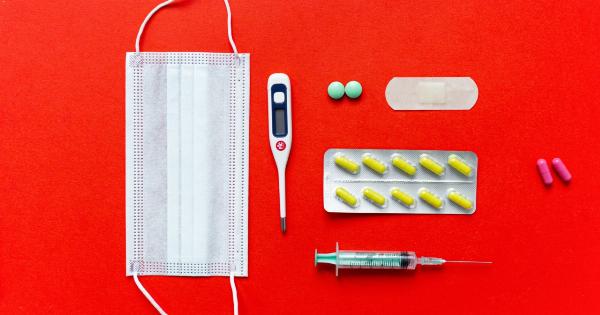When it comes to staying healthy, our immune system plays a crucial role. It’s the body’s defense against infections and diseases, and it helps us fight off any foreign invaders that might harm us.
But did you know that what you eat can either boost or weaken your immune system? Yes, that’s right – your diet can either make you more resilient to illnesses or leave you vulnerable to infections.
In this article, we’ll explore the immune system diet – a way of eating that can help you strengthen your body’s natural defense and improve your overall health.
We’ll take a look at the foods you should be eating, as well as the ones you should be avoiding, to keep your immune system running smoothly.
The role of diet in immune function
Before we dive into the specifics of the immune system diet, let’s first understand why diet plays such an essential role in immune function. The immune system relies on various vitamins, minerals, and nutrients to function correctly, such as:.
- Vitamin C
- Vitamin D
- Vitamin E
- Vitamin A
- Zinc
- Selenium
- Iron
- Protein
- Omega-3 fatty acids
- Probiotics
When we lack these nutrients, our immune response can weaken, and we become more susceptible to infections and diseases. For example, vitamin C plays a crucial role in wound healing and collagen production, which is necessary for healthy skin.
Vitamin D helps regulate the immune system and is critical for bone growth. Iron is essential for hemoglobin production, which carries oxygen throughout the body.
Overall, a well-balanced diet is essential for immune function and overall health. Let’s now look at the foods that can help you achieve that.
Foods that boost the immune system
There are several foods you can incorporate into your diet to boost your immune system:.
1. Citrus fruits
Citrus fruits are an excellent source of vitamin C, which is crucial for immune function. Oranges, lemons, limes, grapefruit, and tangerines are great choices to incorporate into your diet.
2. Leafy Greens
Leafy greens, such as spinach, kale, and collard greens, are excellent sources of vitamins A and C. They also contain antioxidants that protect against cellular damage.
3. Berries
Berries, such as blueberries, strawberries, and blackberries, are rich in antioxidants and vitamin C, making them a great addition to any immune system diet.
4. Garlic
Garlic has been shown to have antimicrobial and anti-inflammatory properties, making it an excellent choice for boosting immune function. It’s also rich in vitamins C and B6.
5. Ginger
Ginger is loaded with anti-inflammatory compounds, making it effective against inflammation and infections. It’s also rich in antioxidants and vitamin C.
6. Yogurt
Yogurt is an excellent source of probiotics, which help support gut health and improve immune function. Choose low-sugar options that contain live cultures.
7. Almonds
Almonds are a good source of vitamin E, which is essential for immune function. They’re also a great source of healthy fats and fiber. Other nuts, such as walnuts and pistachios, are also good choices.
8. Oily fish
Oily fish, such as salmon and tuna, are rich in omega-3 fatty acids, which can reduce inflammation in the body and improve immune function.
9. Turmeric
Turmeric contains curcumin, a powerful anti-inflammatory compound. It’s also rich in antioxidants, making it a great choice for boosting immune function.
10. Green tea
Green tea is loaded with antioxidants and has antimicrobial properties, making it effective against infections. It’s also rich in L-theanine, an amino acid that can improve immune function.
Foods that weaken the immune system
Now that you know the foods that can help boost your immune system, it’s essential to understand those that can weaken it. Here are some foods and drinks to avoid:.
1. Sugar
Sugar can weaken the immune system by suppressing immune function. It can also increase inflammation in the body and contribute to chronic diseases such as obesity and type 2 diabetes.
2. Processed foods
Processed foods are often high in sugar, unhealthy fats, and calories. They lack essential nutrients and can contribute to inflammation in the body, leading to a weakened immune response.
3. Alcohol
Drinking too much alcohol can affect the immune system by reducing the number of white blood cells, which are critical for fighting infections.
4. Fast food
Fast food is often high in calories, unhealthy fats, and salt. It can contribute to inflammation and weaken the immune system.
Conclusion
An immune system diet is all about incorporating healthy foods and avoiding those that can weaken your body’s natural defense.
By choosing nutrient-rich foods like citrus fruits, leafy greens, and berries, you can help support immune function and overall health. Avoiding sugar, processed foods, and alcohol can also help keep your immune system running smoothly.































